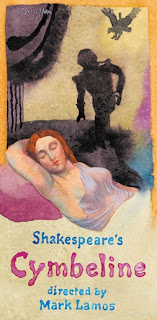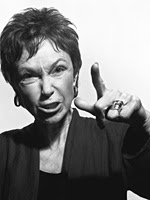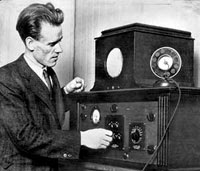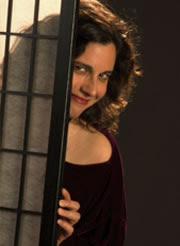 "Les Miserables" at the Broadhurst Theatre, December 12, 2007
"Les Miserables" at the Broadhurst Theatre, December 12, 2007A couple of months ago, I posted my thoughts on last season's revival of "A Chorus Line" and described it as a second national tour. Having seen this third national tour of "Les Mis" I have to say that I spoke too highly before. ACL, compared to LM, is actually more of a non-equity regional production.
This production of LM, initially to be a "limited run" of some six months, has recently announced a closing date of January 6, 2007. Time to get back on the road, I suppose?
I also have to say that LM is one of my favorite scores in the world. I've seen it three other times, once in Washington, DC at the Kennedy Center prior to its Broadway debut, again in the first national tour (also in Washington, DC) at the National Theatre, then a later tour at Oven Auditorium in Charlotte, NC. The first production was truly mammoth, the most enormous thing I'd seen on a stage. The second was scaled down, but it was then I realized that what made the show work so well was the music. Even the third was the last show in a five-show weekend and the tenor singing Valjean sounded completely exhausted. It was still thrilling.
Now, at least fifteen years later, I finally got to see LM in New York. The score is still thrilling, but there's much that has been lost in nearly 20 years of touring.
John Owen-Jones, billing himself as the youngest actor to have played the role when he was 26. (Yes, my first thought was "casting mistake" too.) This must have been many years ago. His younger Jean Valjean through much of the first act, came across with an odd feeling of Jonathan Pryce. As he aged, the interpretation came off a bit more traditional, if a bit vocally indulgent, particularly in "Bring Him Home."
Another disappointment was Gary Beach's Thenardier. I had high hopes for him in this role, yet it appears he's gotten his first laptop and was just emailing his performance in. Jenny Galloway snatches away the comic focus in her two brief lines in "Master of The House." She maintains that control in all of her remaining scenes as well.
A lovely ray of light was Judy Kuhn's Fantine. In great voice, and hovering head and shoulders above all those around her with her performance, I was anxious for her reprise late in Act II.
In the meanwhile, I suffered through Associate Director Shaun Kerrison's mediocre restoration of Trevor Nunn's work in scene after scene that had degraded from powerful and thoughtful moments, to the lowest common denominator of only going for the laugh. One of the most regrettable examples of this was Marius' (Adam Jacobs) giving us what should have been a vulnerable young man making his first testament of love, but turned out to be a poor Al Jolson-style, one-kneed, minstrel plea. The romance and tenderness were shattered.
Mr. Jacobs also demonstrated a vocal weakness shared by many of his cast mates, including Max von Essen as Enjolras, neither of whom projected much past the 3rd or 4th row. Two roles of such passion should be presented by particularly strong voices. I think the sound design was also a factor. Even Gary Beach was just about unintelligible on every line. I realize it was a two-show day for these guys, but the Wednesday ticket-buyers deserve the same performance seen by the audience on a single-show day.
Megan McGinnis struggles similarly as Eponine. After a lovely and touching performance as Beth in "Little Women" three years ago, she's in a role that requires more voice than she's got. Again, sound design could be an issue - the orchestra totally overpowered her in "On My Own."
Leah Horowitz' Cosette is best described by the late Anna Russell when she discusses how to write your own Gilbert and Sullivan operetta, "...the British piercing soprano one finds in these sort of operas...she's very sweet." Sweet, bordering on the precious, I must add.
John Napier's production design holds up as well as can be expected for 20 year old technology.
Nonetheless, the show finishes on a high note. If only the rest of the show carried that level of thrill.























